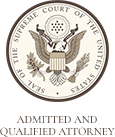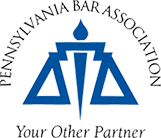Getting arrested brings a range of emotions and potentially life-changing decisions, so it is important to know how to respond if you find yourself in this situation.
An appropriate response with law enforcement is always in order, but you may need to take steps to protect your rights and the case against you. Here is a quick guide on what to do after an arrest.
Things to do
When you are in a situation involving the police or the court, always be courteous and polite. Comply with requests for documentation or other evidence. Ask for the reason behind the arrest and for a search warrant if they request to search your things. Write down as much as you remember about the arrest and preserve any evidence in your possession.
Things not to do
It is just as important to avoid making some critical mistakes when arrested. There is no legal requirement to answer any questions law enforcement asks, so you shouldn’t feel obligated to volunteer information to the police or speak with them alone. You can take an active role in your defense by waiting for counsel to be present before signing any paperwork or consenting to an interview.
After the arrest, refrain from talking about the details or case on social media or with friends. Preserve any evidence that supports your case and be present for all court dates. Follow the terms of your bail and comply with any court directives.
These decisions can help your case moving forward and protect your rights. How you respond to the situation, whether innocent or guilty, can impact the final outcome of the situation.



